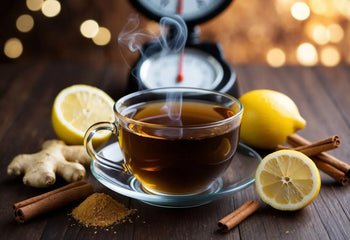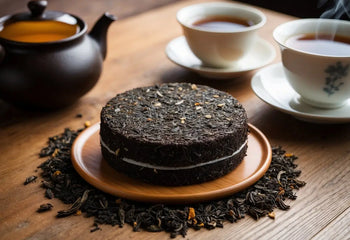Why Pu Erh Tea Is Popular Among Weight Loss Enthusiasts: Science and Myths
Shop our premium Pu Erh tea collection—available in both ripe and raw varieties! Pu Erh tea has gained significant attention in weight loss communities over the past decade. This fermented Chinese tea, known for its earthy flavor and rich history, has become a staple in many health enthusiasts' daily routines. Research suggests that Pu Erh tea may boost metabolism and help fat breakdown through its unique composition of compounds created during the fermentation process. The popularity of this ancient brew extends beyond just potential weight management benefits. We've noticed increasing interest in Pu Erh tea not only for its possible...
Understanding the Aging Process of Pu Erh Tea: How Time Changes the Flavor
Shop our premium Pu Erh tea collection—available in both ripe and raw varieties! Like fine wine, pu erh tea transforms dramatically with the passage of time. We've witnessed countless tea enthusiasts become captivated by the complex flavor journey that occurs as this unique tea ages from months to decades. Pu erh tea undergoes a natural microbial fermentation process that continuously develops its character, typically shifting from bright, astringent notes in young tea to deep, smooth, earthy flavors in aged varieties. The aging process isn't merely about waiting—it's an intricate dance of environmental factors, storage conditions, and chemical reactions. Humidity, temperature,...
How to Host a Pu Erh Tea Tasting Party Like a Pro
Shop our premium Pu Erh tea collection—available in both ripe and raw varieties! Hosting a Pu Erh tea tasting party elevates an ordinary gathering into a memorable cultural experience. We've been organizing these tastings for years and discovered that the rich history and complex flavors of Pu Erh create natural conversation starters, even among guests who aren't tea enthusiasts. With proper preparation and presentation, anyone can host a successful Pu Erh tasting that impresses guests while deepening their appreciation for this ancient Chinese tea. The key lies in curating a thoughtful progression of teas—from younger, lighter sheng Pu Erh to...
Exploring the Different Shapes of Pu Erh Tea: Cakes, Bricks, and Tuocha Explained
Shop our premium Pu Erh tea collection—available in both ripe and raw varieties! Pu Erh tea, with its rich history spanning centuries in China, offers more than just unique flavors and health benefits. The diverse shapes in which this tea is compressed—cakes, bricks, and tuochas—each tell a story of tradition, practicality, and craftsmanship. We've found that many tea enthusiasts are initially confused by these various shapes when first exploring Pu Erh. The compressed forms aren't merely aesthetic choices—they serve practical purposes in the aging process. Each shape allows the tea to breathe differently, creating subtle variations in how flavors develop...
Recent articles






